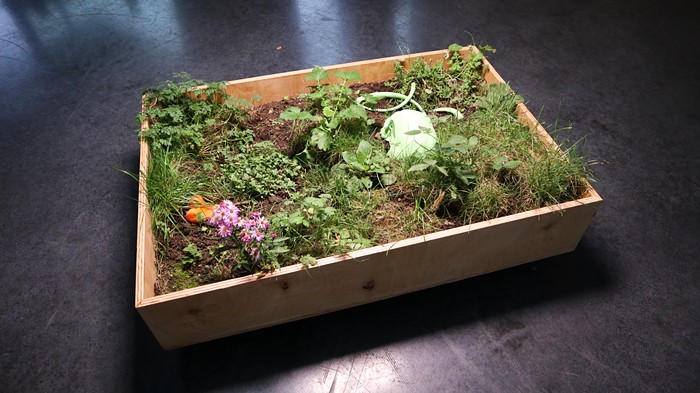The coastal capital of Accra, Ghana, has a tropical climate, but each year there is a dry season called the Harmattan when cool, dusty winds blow in from the Sahara Desert. The dust settles over the city like a dense fog, blurring the air over the bustling markets and red sand beaches. For the women of the international Muslim communities in northern Accra, the Harmattan is a time of year associated with relationships and reflection.
A German-born artist with Ghanaian roots who now lives and works in Accra, Zohra Opoku uncovers the daily lives of these women—whom she calls her "protagonists"—by photographing them in intimate spaces ordinarily hidden from view. "It was amazing how when I decided to work with the Muslim community, how the doors were very open, and how warmly received I was," she says. "They were willing to open up their personal space for me to share inside their home, their community, their daily environment, things they were doing. I'm overwhelmed by how many people I met through this, and how much I learned by spending time with them."
Some of these photographs, on exhibit at Mariane Ibrahim Gallery through March 17, have been turned into silk screens, which Opoku prints onto pieces of fabric she buys at the local markets. Each image is then embellished with beads, vibrantly colored embroidery thread, or sumptuous snatches of lace. Then they are hung from elegant brass dowels, making them hybrid objects that are both photographic and sculptural.
"I always look at identity via textile culture and symbolism, because I come from a handcraft family in Germany and I studied fashion design," she says. "I enjoy working with something that's flexible, that's alive, that tells stories by its history of use."
Nowhere in this exhibition is fabric more alive than in the video installation Before the Prayer / After the Prayer, which follows a woman named Zullaiha on her way to and from the mosque that gives rhythm and structure to her daily life. Although she is fully veiled, her friends call out to her; there's no mistaking that it's Zullaiha inside the colorful fabric that sails through the back streets of the city.
In 2017, Opoku exhibited textile works at the Armory Show in New York—an innovative installation that won the prestigious Booth Prize for gallerist Mariane Ibrahim. Those textiles connected the stories of both her German and Ghanaian families. Harmattan Tales also features some autobiographical works, in the form of self-portraits in which Opoku has draped herself with various fabrics and laces, some of which are enticingly sheer.
"When I see someone who is fully veiled, I'm always thinking about what's underneath, and become curious about the person I don't see," she says. "I tried different ways of veiling myself to create different versions of myself in a veiled situation."
Peeking out around her figure in these images are living plants that, like her, are transplanted from elsewhere. "For me, everything is always about identity and making yourself a home. The dress is a feeling of belonging, of blending in."



















